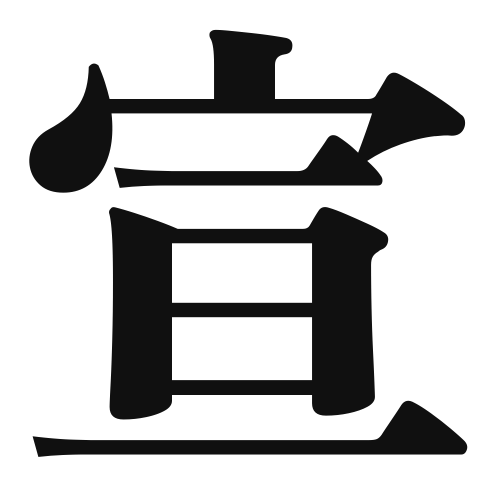1. Overview of Meaning
The kanji “宣” (sen) means “to declare,” “to announce,” or “to proclaim.” It conveys the idea of making something known or public, often in an official or formal context.
2. Formation and Radical
Formation of the Kanji: The kanji “宣” is a phonetic-ideographic character (形声文字). It combines the meaning of “to speak” (言) with a phonetic component that suggests its pronunciation.
Radical: The radical of “宣” is 言 (gen), which relates to speech or words.
3. Examples of Usage
Common Words and Phrases:
- 宣言 (sengen) – declaration
- 宣伝 (senden) – advertisement or promotion
Example Sentences in Daily Conversation:
- 彼は新しい政策を宣言しました。 (Kare wa atarashii seisaku o sengen shimashita.) – He declared the new policy.
- この商品はテレビで宣伝されています。 (Kono shouhin wa terebi de senden sareteimasu.) – This product is being advertised on television.
4. Synonyms and Antonyms
Similar Kanji:
- 告 (koku) – to inform or notify; it emphasizes the act of informing someone.
- 報 (hou) – to report; it focuses on delivering information.
Antonyms:
- 隠 (in) – to hide; it represents the opposite action of making something known.
5. Cultural and Historical Background
Relation to Japanese Culture: The kanji “宣” is often used in formal contexts, such as government announcements or public declarations, reflecting the importance of communication in Japanese society.
Proverbs and Idioms:
- 宣伝効果 (senden kouka) – the effect of advertising; this phrase highlights the impact of announcements in marketing.
